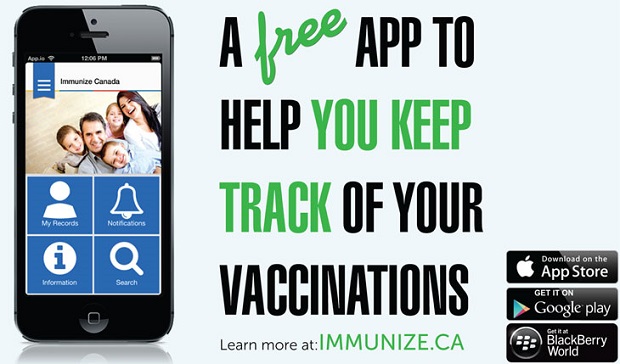The government is spending $3.5 million to improve an existing immunization mobile app so that services for new immigrants and refugees can be added to the tool.
ImmunizeCA was launched back in 2014 to help people store and manage the vaccination records, and now a collaborative project led by researchers from the Ottawa Hospital with the support of the Canadian Public Health Association, Immunize Canada, and the Better Outcomes Registry and Network at the Children’s Hospital of Eastern Ontario, phase two of the project aims to enhance and expand the capabilities of the tool.
The mobile app provides access to vaccination schedules based on information specific to people’s home province or territory. It also contains information about vaccination for children, adults and travelers. The app offers useful tools such as appointment reminders and local outbreak notifications.
Phase two of the project will involve the construction of a digital platform that will allow:
- Secure access to information so that all family members can share their records;
- More functions, including a web-based platform (access through a laptop/desktop computer, as well as through a mobile phone);
- Ability to integrate with provincial immunization records;
- Customizable schedules and information for individuals with health conditions, such as children with inflammatory bowel disease; and,
- Catch-up schedules for newcomers to Canada, including refugees.
In keeping with its humanitarian commitments, Canada accepts about 10,000 to 14,000 refugees and about 250,000 immigrants each year.
In response to the Syrian refugee crisis last year, the new Liberal government has taken in some 26,500 refugees from the war-torn region since November last year.
According to the Public Health Agency of Canada, a high proportion of individuals newly arrived in Canada may be susceptible to vaccine-preventable diseases because of a lack of effective immunization programs in their country of origin. Immunization of persons new to Canada is often challenging because:
- Immunization records may not exist;
- Records may be difficult to interpret because of language barriers;
- Immunization schedules and vaccines may differ from those used in Canada; and
- There may be doubt about the authenticity of the records or vaccines used. Judgment should be used when assessing the reliability or authenticity of immunization records of people new to Canada.
The enhancement project is expected to cover a period of three. Following this three-year phase, it is expected that the project will become self-sufficient.
While the improvements aim to provide instant access to user data, measures are being taken to ensure security and privacy of personal information.
“Phase Two of ImmunizeCA will contribute greatly to the health of mothers, newborns, children and all Canadians. BORN and CHEO are pleased to help Canadian families manage and share their immunization information by providing them with this secure digital platform,” said Dr. Pranesh Chakraborty, Medical Director, BORN Ontario, Children’s Hospital of Eastern Ontario “Personal data will be protected to the highest standards.”

